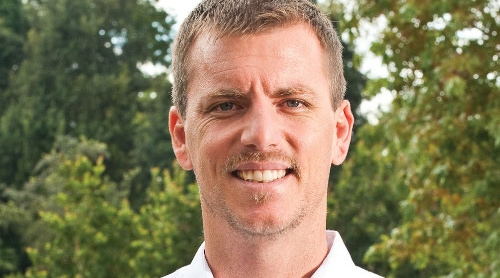DoughGetters' Willem Haarhoff shares the seven things they learned while working from home during the pandemic.
Our dynamic accounting team has been working remotely for over five years now. We’ve learned a few valuable lessons along the way, things we feel many companies are only now – a good year post hard lockdown and almost enforced remote working – starting to grapple with.
When Murray Barnetson and Willem Haarhoff founded DoughGetters, the idea was to break the “traditional” accounting mould, to jump out of the 20-odd years worth of working the orthodox way as accountants. Not for them pinstripe suits and the proverbial corner office in a tall building … Not for them a name like “Barnetson, Haarhoff & Co”.
Instead they set about crafting a look, feel; and – perhaps most importantly – behavioural culture that relies heavily on technology, all without compromising on performance, results and customer satisfaction. The culture they wanted to create was based on a people-centric philosophy, something that gave their workforce the ability to design the way they want to work.
It’s now more than half a decade since they stepped out of the high rise and set up a cloud accounting platform that allows the (30-strong) DoughGetters team to provide a professional service from any location to any other location. Along the way they’ve learned a few very valuable lessons about working remotely, principles you can apply easily in your organisation.
1. 100 percent top-down approach
For remote working to function throughout the organisation, one needs to understand what cultures are required and implement those from top management all the way to the bottom. “Middle management” is something of a superfluous term in the remote organogram. Remote working is not about appointing a middle manager in the business and relying on them to make sure the “working” happens. The most senior person in the organisation has to buy into the culture and functionality. They have to believe it, live and breathe it and only then will the right kind of culture flow through the rest of the business.
2. Zero micromanagement
Point #1 leads directly into this: If your management style as a business owner or senior manager is that of micromanagement, remote work is not going to work for you. We truly believe that it is simply not possible to micro-manage and use the term ‘remote work’ in the same breath.
You have to be clear about who you want to hire, how you want to collaborate and more importantly, you have to set up your business to measure outcomes, not inputs. Understanding inputs going into the processes is important, but that cannot be the basis upon which you measure the success of the outcomes. It has to be outcomes driven.
3. No compromise on customer service
So here is the thing, right: an accountant can very easily feel that they are such an integral part of a client’s business that they are doing the client a ‘favour’ by doing their books. This is critically flawed – it’s the other way around. Your client is doing you a favour by being your customer.
So, at DoughGetters we strive to be recognised as the go-to team that helps business owners and entrepreneurs win back lost time. We do that by providing them with the solutions and answers to get a proper handle on their finances so that they can have successful business concerns and pursue healthy and worthwhile lives.
This means our team’s ‘freedom’ in terms of where, how and how much they work is carefully balanced with an exceptional customer experience. The bottom line is that you don’t have a business if you don’t have clients. So from that perspective you have to put various things in place so that your clients have a beautiful experience.
We try to differentiate ourselves from the rest by making the process of consumer engagement as smooth and easy as possible. Secondly we make sure that the quality of people we put in front of the client are all highly qualified and experienced. Thirdly, we’re highly particular about taking responsibility (and rectifying things) when things do go wrong.
4. Let technology work for you
For better or worse, we’ve had some staff turnover over the past five years and taken many lessons from these. Of course it is not always the proverbial moonshine and roses. The truth is that it’s not easy to work remotely (from a business owner’s perspective).
How do you ensure accountability? How do you check that people do what they are meant to do? How do you track that employees put in the hours required?
We make use of highly intuitive apps such as Asana to track projects and to collaborate – we have a whole ecosystem in the cloud. We’ve learned that remote-working employees need clear structure (in terms of required tasks and outcomes) to ensure they can create their own routines and manage deliverables. This goes a long way to negating unnecessary work anxiety or misunderstandings in terms of priority lists.
5. Real face-time is important (for some)
There is something about being able to get up from your desk and wander over to a colleague, the coffee station or the water cooler and talk nonsense. We’ve learned the importance of this and that not everybody is cut out to work remotely. So, if you as a business are serious about remote working you have to recognise that fact and then create an environment for the people in your organisation who are not comfortable working in their kitchen, lounge, home office, co-working space or coffee shop.
It is a fallacy to think you can run a successful business with people who are all able to work remotely. We believe you have to make room in your team for a variety of people who work in different ways and you need to come up with clever and unique ways to integrate everyone and help them thrive. This may seem counterintuitive but it is a bit part of why we believe DoughGetters has been so successful over the past five years.
6. Ensure scope for growth
The ability to demonstrate to your workforce how they can grow personally in their careers is crucial. This is obviously not necessarily unique to a remote-working business but it is something we perhaps underestimated and undervalued during our early years. Now we know that hiring someone to work in your business is not only a case of employing them to add value to you as an organisation; there has to be a high degree of reciprocity.
7. There is no such thing as work-life balance
We don’t buy into the work-life balance philosophy that gets bandied about so much nowadays. We believe it’s more about integrating work and life. What that means is that you can basically take full control of your day (from work, to eating meals, exercising, spending time with your family, whatever). That you don’t work because you have to, but because you want to. This, of course, is far easier said than done, but it is the pinnacle and the culture we strive to cultivate in DoughGetters. For us work is part-and-parcel of life. We love what we do. Our team has a wide range of skills and talents and therefore we try to be razor sharp in allocating roles and responsibilities accordingly.
8. (Bonus) It is scalable
We’ve also learned to provide the tools for other accountants to become business owners and piggyback on our knowledge and technology base. DoughGetters Accounting is an ever-expanding digital accounting and digital business administration brand, enabling our clients to experience the future of accounting and business admin, today.











